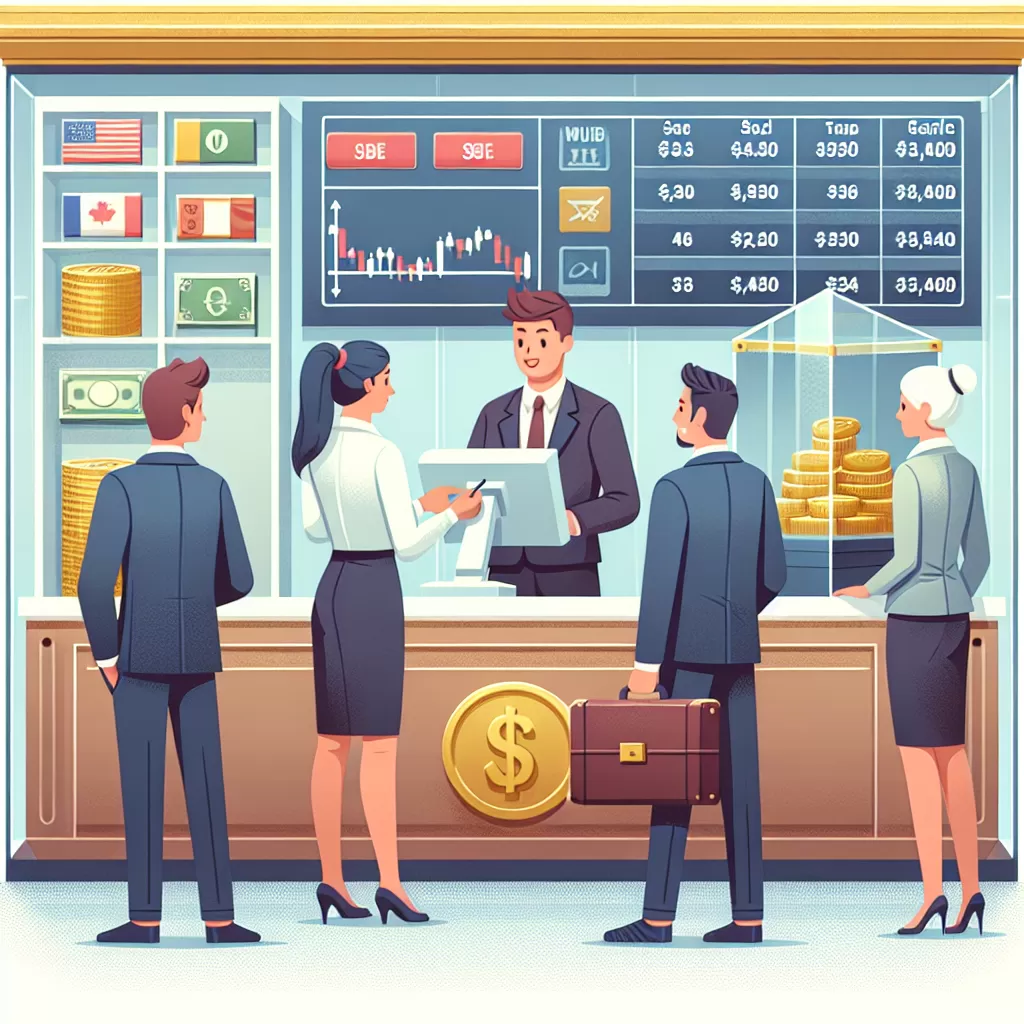How Much Does A Bank Charge To Exchange Currency
Follow Currency Mart April 10, 2024
Where to purchase Foreign Currencies?

Introduction
A mighty topic before us indeed. As the Guardian of currency exchange, I shall elucidate the various aspects pertaining to currency exchange charges by banks. It is crucial to comprehend that there are various influences, fees, and costs associated with a bank’s currency exchange service.Why Do Banks Charge Fees?
Banks, like any other businesses, strive to gain profits. One of their revenue streams is the fee earned from rendering currency exchange services.How Much Does a Bank Charge?
Although specific fees vary across different banks, a standard bank might typically levy a charge between 1% to 3% percent of the total exchange amount.International Banks vs. Domestic Banks
International banks typically offer competitive exchange rates due to their large customer base and increased transactions volume. In contrast, domestic banks may levy slightly higher charges due to lower exchange volume as well as to cover their operational costs.Banks Exchange Rate vs. Market Exchange Rate
Banks usually mark up their exchange rate slightly above the market rate, to cover expenses and ensure revenue. So, an exchange rate presented by a bank may not exactly correspond to the prevailing market rate.Exchange Rate Spreads
An exchange rate spread is the difference between the buy and sell rate that the bank offers. A wider spread can mean the bank is charging a higher fee.Fixed Fees
Some banks may also charge a fixed fee per transaction, separate from the exchange rate. This fee usually ranges from $5 to $15, though it can sometimes be more.Online Banking Charges
Intriguingly, online banking often provides lower currency exchange charges than physical branches. Banks can afford to pass these savings onto customers because operating online reduces their overheads.Avoiding Unnecessary Costs
To avoid unnecessary costs, it's best to conduct some research beforehand. Checking the exchange rate from several banks, comparing it against the market rate, and calculating potential fees can help you get a better deal.The Role of Credit and Debit Cards
Using credit and debit cards for foreign transactions might seem convenient, but there could be significant charges associated, including foreign transaction fees and foreign ATM fees.Good Intermediaries - Currency Brokers and Online Platforms
Online currency exchange platforms and brokers often provide competitive rates as they have fewer overhead costs. However, one needs to ensure the platform is reputable to avoid potential fraud.Conclusion
Banks' currency exchange fees may appear complex but understanding the underlying principles can secure you a favorable deal. Awareness of the various components contributing to the final amount - the fixed fees, the exchange rate spread, and the difference relative to the market rate, will shepherd you towards an advantageous transaction. Take the time to compare different sources, be they banks, online platforms, or currency brokers, to achieve the best exchange rate.
Where to purchase Foreign Currencies?